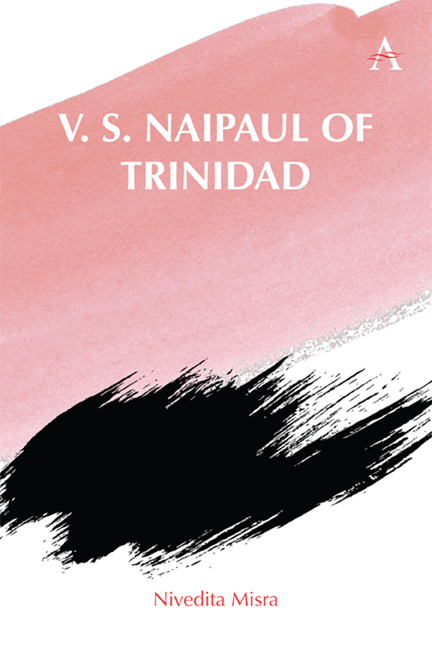Book contents
- Frontmatter
- Dedication
- Contents
- Foreword
- Introduction
- 1 Early Fiction of the 1950s: The Trinidad Years
- 2 The Interloper in Travel Writing
- 3 Mimicry and Experiments of the 1960s
- 4 Displacement Across Borders in the 1970s
- 5 The Imperial Vision of the 1980s
- 6 Redemptive Journeys in the 1990s
- 7 Composing again in the 2000s
- Conclusions
- Appendix A A Note on Trinidad
- Appendix B A Note on V. S. Naipaul’s Terminolog y and Use of Spellings
- Works Cited
- Index
- Frontmatter
- Dedication
- Contents
- Foreword
- Introduction
- 1 Early Fiction of the 1950s: The Trinidad Years
- 2 The Interloper in Travel Writing
- 3 Mimicry and Experiments of the 1960s
- 4 Displacement Across Borders in the 1970s
- 5 The Imperial Vision of the 1980s
- 6 Redemptive Journeys in the 1990s
- 7 Composing again in the 2000s
- Conclusions
- Appendix A A Note on Trinidad
- Appendix B A Note on V. S. Naipaul’s Terminolog y and Use of Spellings
- Works Cited
- Index
Summary
V. S. Naipaul and the Caribbean
I hope that through this analyses I have achieved the aims that I set out in my introduction. Naipaul began writing using his early childhood exposure to the East Indian culture in Trinidad as a basis for writing about the Caribbean. When he embarked on his travel writing, he explored ‘areas of darkness’ that were related to his limited knowledge about his own complex heritage: ‘The land; the aborigines; the New World; the colony; the history; India; the Muslim world, to which I also felt myself related; Africa; and then England, where I was doing my writing. That was what I meant when I said that my books stand one on the other, and that I am the sum of my books’ (‘Two Worlds’ 2001e: 2003, p. 190). As he expanded his horizons, so did he expand the history of Trinidad. No idea or event in Trinidad escaped his scrutiny—it included an exploration of Trinidad’s pre-Columbian past, its ‘discovery’ and plantation history in The Loss of El Dorado, his childhood in post-indentureship Trinidad in ‘Prologue to an Autobiography’ and Reading and Writing, the 1946 Trinidad general election in The Mystic Masseur; the 1950 Trinidad general election in The Suffrage of Elvira; the preparations for Independence in The Middle Passage; the first elections in Trinidad post its independence in 1966 in The Mimic Men; the Black Power Movement in ‘Michael X and the Black Power Killings in Trinidad’ and Guerrillas; the installation of the first non-PNM government in 1987 and the 1990 coup in A Way in the World. He further explored various aspects of his East Indian heritage in the Forewords to The Loss of El Dorado and The Adventures of Gurudeva and Other Stories, and once again in A Writer’s People. Perhaps Trinidadians could fault him for not commenting directly or obliquely on the first East Indian-dominated UNC government in 1995. However, this move away from Trinidadian politics was accompanied by a focus on what his own life had to offer the next generation. Eight out of 12 novels that Naipaul wrote, namely, The Mystic Masseur, The Suffrage of Elvira, Miguel Street, A House for Mr Biswas, The Mimic Men, A Flag on the Island, In A Free State, and Guerrillas, are based in Trinidad.
- Type
- Chapter
- Information
- V. S. Naipaul of Trinidad , pp. 183 - 190Publisher: Anthem PressPrint publication year: 2024



